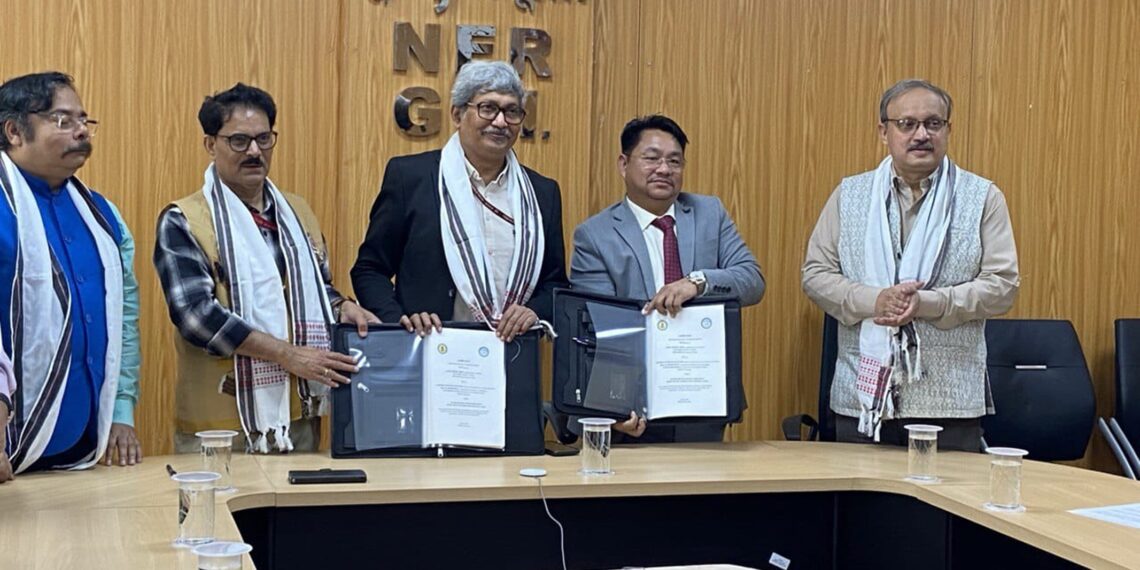Itanagar: In a step toward harnessing clean energy and advancing geoscientific research in the Northeast, the Centre for Earth Sciences and Himalayan Studies (CESHS), Arunachal Pradesh, has signed a Memorandum of Understanding (MoU) with the Geological Survey of India (GSI).
The collaboration will focus on geothermal energy exploration and broader earth science studies across Arunachal Pradesh and the surrounding region.
The MoU was formally signed on Monday at the GSI’s northeastern regional headquarters in Shillong, marking a key milestone in scientific cooperation in the Himalayas.
Hailing the partnership as a “landmark development,” GSI Director General Asit Saha said the agreement would significantly contribute to shaping the geological, mineralogical, and hydrological understanding of the Arunachal Himalayan belt.
He reaffirmed GSI’s commitment to supporting CESHS in its mission to promote advanced earth science initiatives in the region.
“This collaboration ushers in a new era for scientific exploration in the Northeast. GSI is fully committed to backing CESHS in achieving its long-term goals,” Saha stated.
Established in 1851, GSI has played a foundational role in India’s scientific infrastructure—mapping geological formations, discovering mineral resources, and monitoring seismic activity. CESHS Director Tana Tage acknowledged GSI’s historic contributions and underlined the synergy between the two institutions.
“GSI’s legacy spans nearly two centuries and has been vital to India’s development. As a young but ambitious institution, CESHS shares that commitment to scientific excellence and national service,” Tage said.
He also emphasised the untapped potential of the Arunachal Himalayas as a geothermal energy hub.
“This collaboration is not just about science—it’s about national progress. We hope to combine indigenous knowledge with modern techniques to unlock sustainable energy sources hidden beneath our soil.”
ALSO READ: All-women tri-service crew embarks on 55-day sailing expedition to Seychelles
Tage noted that the joint initiative could pave the way for innovation in both scientific research and policy-making, especially in the context of sustainable development in remote and ecologically sensitive areas.
The CESHS-GSI partnership is expected to accelerate exploratory work in the geothermal sector, providing a foundation for clean energy solutions and deeper understanding of the region’s complex geology.















